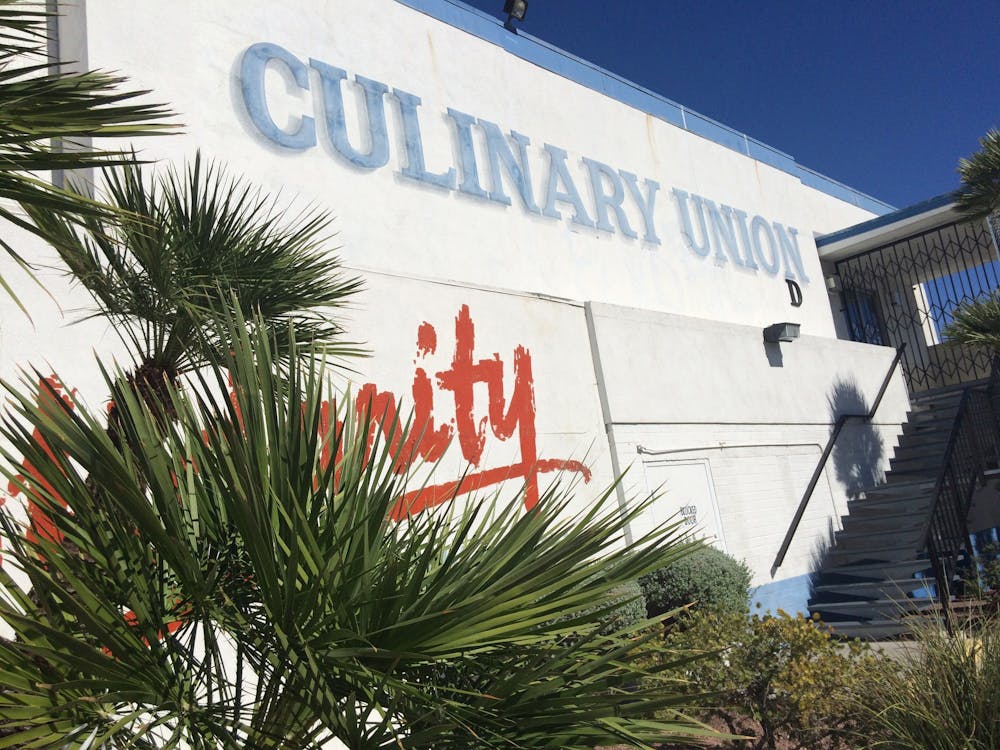Following the New Hampshire Democratic primary race, several Democratic candidates took to Twitter to criticize “Medicare for All,” suggesting it would diminish labor unions’ long-fought effort to expand employee health coverage.
Sparking the Twitter conversation was a statement by secretary-treasurer of the Nevada Culinary Workers Union, Local 226, Geoconda Argüello-Kline, in which she condemned Sanders’ supporters for responding to union flyers which said if Sen. Sanders, I-Vt., were elected, he would “end Culinary health care.”
In response to her statement, candidates such as former South Bend, Indiana, Mayor Pete Buttigieg, Sen. Elizabeth Warren, D-Mass. and Sen. Amy Klobuchar, D-Minn., quote-tweeted her, claiming to stand with union workers on the issue of health care.
Argüello-Kline’s statement was highly misleading about the effects of Medicare for All, but more importantly, the candidates’ responses only showed their ignorance on health care.
Medicare for All legislation, sponsored by Sanders and Rep. Pramila Jayapal’s, D-Wash., are currently the only health care plans that really benefit labor unions. By separating the tie between employment and health care, labor unions can then devote more time to fighting for better wages and working conditions.
Klobuchar and Buttigieg have been forthright in their support for a “public option” for health insurance, which would not solve the problem.
As it stands currently, many labor unions spend a substantial portion of their time fighting for quality health care plans through their employer. This would not change with the implementation of a public government health care option.
A public option does not provide universal health care coverage and leaves the for-profit health insurance industry in place. Workers already have enough to fight for, so we need to take the burden of health care off the backs of labor unions now.
When workers have to bargain with their employers for good health insurance plans in addition to decent wages and working conditions, oftentimes they will have to sacrifice some gains in wages in order to have decent health coverage.
A single payer system would grant everyone universal health coverage through the government, expanding labor unions’ collective bargaining power. Now that their fight for health care is not cutting into their gains on wages, unions will likely be able to receive even more benefits from their employers.
Although Warren has claimed to support Medicare for All, she has wavered on the issue several times in the past, and her response to Argüello-Kline’s statement should make labor unions question her support for workers.
“No one should attack @Culinary226 and its members for fighting hard for themselves and their families,” Warren tweeted. “Like them, I want to see every American get high-quality and affordable health care — and I’m committed to working with them to achieve that goal.”
By siding with union bosses like Argüello-Kline, Warren is halting labor unions from fighting for actual reform, contributing to the notion that Medicare for All takes away earned union benefits.
If Warren was truly in support of Medicare for All she would have not used the words “affordable health care,” since it would be free at the point of service, and she would have defended single-payer health insurance as highly beneficial for labor unions.
Warren, Buttigieg and Klobuchar are not siding with union workers. They are siding with union bosses and against the workers.
Sanders’ position, on the other hand, is that every worker should receive full health care benefits and coverage, not just those in a union. So far, Sanders has a massive lead in major labor union endorsements at 29, significantly surpassing the next most-endorsed candidate, former Vice President Joe Biden, at nine and Warren at four.
If Sanders’ opponents were honest, they would not have to use broad platitudes showing their support for labor unions. Instead, they would make policy-focused arguments about why their policies are more beneficial for union workers.
Jonah Hyatt (he/him) is a junior studying political science and philosophy. He is the treasurer of the Palestine Solidarity Committee at IU.






